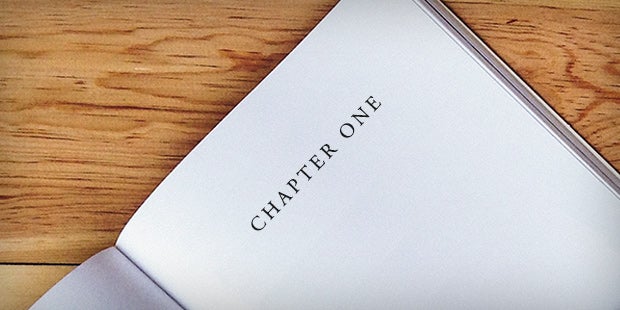While titles, covers, and marketing copy are all important ways to attract a reader to your book, the first page of the book itself has an equally critical role: it offers readers a glimpse of your writing style and the story that follows.
Our editors are tasked with recognizing great books quickly. They look for many things throughout a manuscript, but today, we asked a variety of Penguin Random House editors what they like to see on an opening page.
A Powerful Opener
The power of the opening line or paragraph cannot be overstated. These are the first words a reader will see, so that paragraph can serve many purposes, like introducing the world, characters, or plot while giving readers an attention-grabbing taste of your writing.
For example, the opening lines of Kerry Kletter’s The First Time She Drowned use unique imagery and prose to suggest a deeper emotional storyline: “My mother wore the sun like a hat. It followed her as we did, stopping when she stopped, moving when she moved. She carried her beauty with the naïveté of someone who was born to it and thus never understood its value or the poverty of ugliness.”
Unique Perspective
Regardless of genre or category, your story is unique to you and to your readers. Books that highlight that uniqueness right from the outset stand out in this competitive market.
Ali Smith’s How to Be Both had two versions of the book published simultaneously, with starkly different first pages. The two distinct reading experiences “depend on an element of chance,” according to The Guardian, which adds a unique perspective to this story.
As we mentioned in this Author News article, singularity is important. The first page should answer the following question: “What is one thing this book does better than any other book?”
A Well-Realized World
World building can start as early as the first line. One editor explains: “My favorite commutes are the ones where I can’t wait to get on the subway because I am desperate to get back to the world of the book I am reading.”
One thing our editors look for is immediate access to the world that readers will be living in for the next few hundred pages—through description, character interaction, or dialogue. Take, for example, the opening sentence of Erik Larson’s Dead Wake: “The smoke from ships and the exhalations of the river left a haze that blurred the world and made the big liner seem even bigger, less the product of human endeavor than an escarpment rising from a plain.”
An Authentic Voice
A fresh, new voice can command a reader’s attention, and it will do the same for our editors. Regardless of writing style or point of view, the voice must connect to all readers, while convincing them to follow the characters’ journey over the next few hundred pages.
For example, the expletive-fueled first line from Andy Weir’s The Martian is closely followed with more lines that show the character’s dry humor: “Maybe there’ll be a day of national mourning for me, and my Wikipedia page will say, ‘Mark Watney is the only human being to have died on Mars.’”
Here, the voice shines through a specific character, but it can be reflected broadly in everything you write. As we discussed in a recent story on developing your author voice, the way you connect to your audience in your writing (both online and off) encompasses your own particular worldview and how you want to be seen.
Attention-Grabbing Characters
As authors know, attention-grabbing characters are critical in getting readers invested in your book. And that can start on page one. Take L. S. Hilton’s Maestra¸ for example, where the first page introduces the reader to what The New York Times described as its “feisty, morally complex, and sharp heroine”: “I was waiting on the platform for the Piccadilly line at Green Park after another fabulous start to another fabulous week of being bullied and patronized at my super-fabulous job.”
An editor’s tastes and opinions about a book are subjective, of course. As authors know, an editor has to be incredibly passionate about a project to champion it over the years in development. But when the first page successfully blows an editor away, it can keep them invested throughout the project and make them even more excited to fight for you and your book.
Phil Stamper-Halpin is the manager of Publishing Development and Author Platforms for Penguin Random House.


